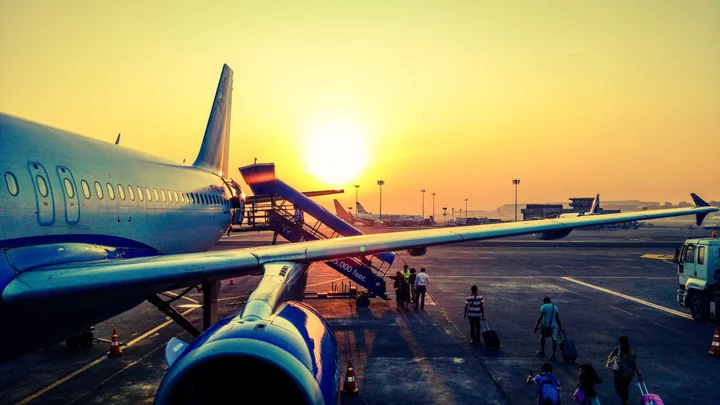This content originally appeared on Mashable for a US audience and has been adapted for the UK audience.
We all know the racket that comes with taking a flight: engines, clatter, babies, music leaking from other people’s headphones, and that weird hum that just permeates in the cabin. What you need are a pair of headphones that not only sound great and offer smart features, but a pair that can also block out the world around you. It’s a fast track to total relaxation on a flight.
Buying a pair of headphones, however, is never straightforward. There are all sorts of features and designs to choose from. Not to mention a price scale that ranges from “suspiciously cheap” to “eye-wateringly expensive.” Unless you know your stuff, it’s hard to know where to even start. That’s where we come in.
We've already rounded up the best headphones in general, the best noise-cancelling headphones, and the best wireless headphones. But this is the first time we've looked at the best options for air travel, to help you have a more comfortable flight. Before making your choice, check out this need-to-know information.
What makes a pair of headphones good for flying?
Headphones come with all sorts of features, from customisable sound to voice assistant connectivity. But there are some features that are especially good for flying, such as Bluetooth connectivity, battery life, and noise cancellation.
Are wired or wireless headphones better for travelling?
In day-to-day life — as in, life on the ground — it’s down to personal choice. Most audiophiles will tell you that wired headphones deliver better sound, while wireless headphones tend to be packed with more smart tech. On a flight, Bluetooth wireless headphones are likely more practical. You can stretch your legs around the cabin without being attached to your device. Not to mention the fact that traditional headphone jacks are incompatible with in-flight entertainment systems. You’re better off going with Bluetooth and connecting to your own smart device.
How long do headphone batteries last?
That all depends on the model. It stands to reason that if you’re taking a flight — especially long-haul — then you want a set with a good battery life. Over-ear headphones have much better batteries than earbuds. Around 30 hours is a very respectable battery life but you can find anything up to 50 hours. In-ear headphones and earbuds have weaker batteries due to their size — a pair of earbuds on this list go for just four hours, for instance — but they often come with a charging case that extends the battery life by many more hours.
What is noise cancellation?
Active noise cancellation (ANC) is a clever bit of tech that blocks out external sound. It uses mini microphones that detect incoming noise and then create anti-sound waves to cancel out that noise. Some headphones have variations of ANC, such as “adaptive” noise cancellation, which cleverly adapts to your surroundings, or ambient modes which let in certain types of external noise such as other people’s voices, so you know when someone’s started a conversation.
What are the best headphones for flying?
We have searched through Amazon’s wide selection of noise-cancelling headphones to help you find the best headphones for every traveller, from headphones that can be folded up neatly to ergonomic in-ear headphones. There is something for everyone in this list.
These are the best headphones for flying in 2023.









